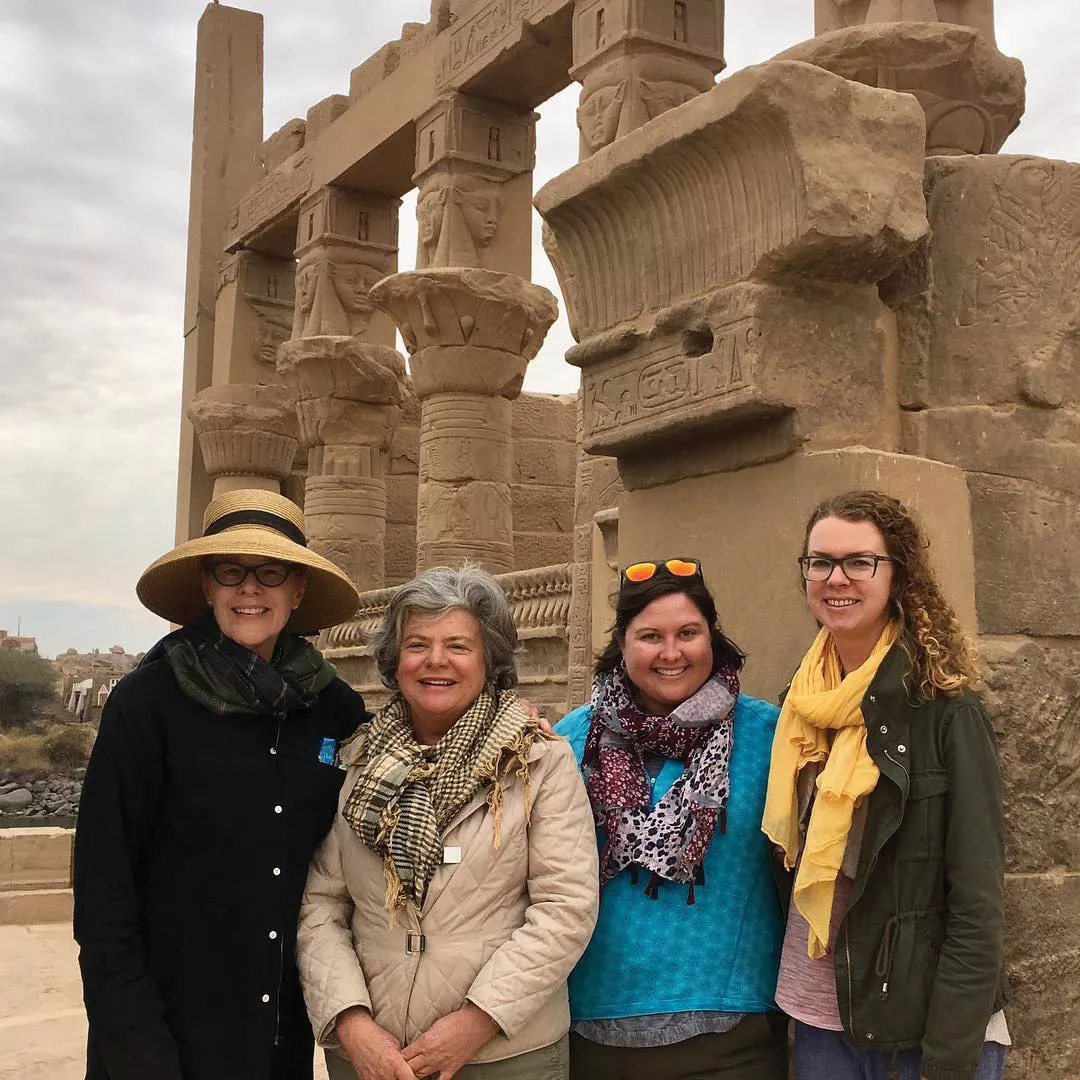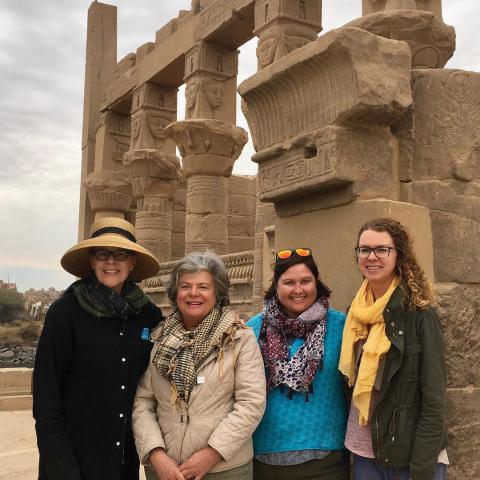Owls In Athens
Bryn Mawr and the American School of Classical Studies.
From the start, Bryn Mawr has loved archaeology. Even before an independent department was created, visiting lecturers brought archaeological discourse to campus, and the arrival of the first full-time instructor in the field, Richard Norton, set in motion a relationship with the American School of Classical Studies in Athens (ASCSA) that continues to thrive today.
Norton was the son of Charles Eliot Norton, one of the founders of the American School, a training ground for scholars and headquarters for excavations conducted in Greece by North American institutions. Early on, it gave women the chance to conduct fieldwork in Greece, and hundreds of Bryn Mawr students (and faculty) jumped at the opportunity.
The first of them was one of Richard Norton’s students, Edith Hall Dohan (Ph.D. 1906). She worked at the Bronze Age site of Gournia, Crete, with pioneering archaeologist Harriet Boyd Hawes. Their joint monograph was the first published by female archaeologists, and Dohan herself was the third American woman to lead an excavation in Greece, at the site of Vrokastro, Crete.
With the appointment in 1914 of Rhys Carpenter and Mary Hamilton Swindler (Ph.D. 1912), archaeology was established as its own department. At the American School, Carpenter served a term as director (1927 to 1932) and founder of its journal, Hesperia. While he was director, the American School began excavations at the Agora of Athens, which continue today. The first female editor-in-chief of the Archaeological Institute of America’s American Journal of Archaeology, Swindler founded the BMC archaeology study collection and organized its involvement at Tarsus-Gözlükule, Turkey, an excavation begun by another ASCSA member, Hetty Goldman, Ph.D. ’37.
The first woman to direct an excavation in mainland Greece (at Halae), Goldman credited an ASCSA trip with cementing her calling: “I cannot remember the exact process by which . . . I was transformed into a passionate excavator who was either turning up the soil of Greece, or planning to return to it,” she wrote, “but complete conversion took place on top of a hill in Boeotia.”
It was on this hill (at the Eutresis excavation) that Goldman was joined by Dorothy Burr Thompson ’23, M.A. ’26, Ph.D. ’34. Bryn Mawr’s first
double major in English and Greek, Burr Thompson returned to earn her Ph.D. after two years at the American School. She spent most of her career on the Athenian Agora and revolutionized the study of Hellenistic terracotta figurines, work for which she was recognized for Outstanding Archaeological Achievement by the AIA in 1987.
Yet another Mawrter and a 1906 classical studies major, Mariam Coffin Canaday was involved with managing the ASCSA along with her husband, Ward Canaday, and daughter, Doreen Canaday Spitzer ’36 (also an ASCSA participant). The family was instrumental in the reconstruction of the Stoa of Attalos in the Agora, and when it was dedicated as a museum in 1956, Mariam and Ward represented President Eisenhower as guests of King Paul and Queen Fredericka of Greece.
To this day, the BMC-ASCSA relationship remains strong: Professor Emeritus James C. Wright, Ph.D. ’78 served as director from 2012 to 2017, and the first woman to hold the office, Dr. Jenifer Neils ’72, succeeded him. Plus, graduate students Ashley Mason and Andrea Samz-Pustol are currently in Athens as members, and this past summer Ana Alvarez ’19 participated in the ASCSA Agora excavations.
Published on: 05/20/2019

